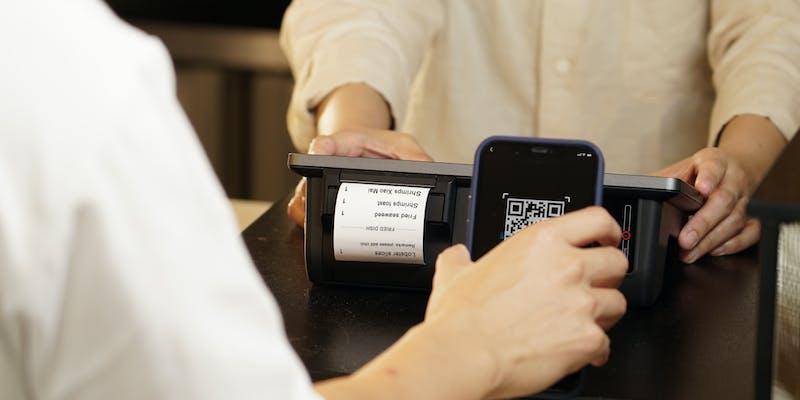Guide to Canceling Pending Debit Card Transactions
Dec 06, 2023 By Susan Kelly
All pending debit or credit card purchases are called pending transactions. After paying with a credit card, the seller may take a few business days to process and post the charge. Your card shows a pending transaction when you spend a hotel deposit for possible additional payments.
These charges remain pending for several days until they are fully processed. It may take longer for a business to send you an order or include a tip in your restaurant bill.
A pending charge won't accrue interest or be added to your total. Yet, it can impact your available balance and your spending capacity. If you're unfamiliar with pending payments, don't worry. You often won't notice them because credit and debit card companies process them swiftly.
Can You Cancel a Pending Transaction?
Generally, stopping a pending transaction is impossible because it hasn't been fully processed. This is a standard aspect of credit card operations, as there's often a delay while the charge is processed.
Once a transaction is posted, credit card companies usually assist customers with disputing issues. So, if you spot an incorrect pending charge, contacting the retailer directly to sort it out is often more effective. This method works best for credit card payment cancellation.
Talking to your bank or credit card provider about unfamiliar or unauthorized transactions may be better. Such scenarios might indicate fraud and your financial institution or card issuer can provide the necessary support and advice.
When to Reach Out to the Seller

If you need to cancel a pending payment, it's best to start by contacting the seller. Let's explore some common reasons for needing to remove charges from your account:
Dealing with Double Charges
Mistakes can occur, leading to double charges from a merchant. This could happen due to technical issues, like accidentally clicking the “purchase” button twice, resulting in multiple orders. If you spot two identical transactions from the same seller on the same day, it's likely a case of being charged twice.
Quickly reaching out to the merchant is advisable in this situation. They can revoke the extra charge and prevent the hassle of sending and returning unwanted products.
Changing Your Mind
It's not rare to regret a purchase or realize you already own the item you've just bought. Acting swiftly to contact the merchant increases the chances of canceling the pending transaction.
This approach saves you from accepting and returning the product and waiting for a credit card refund.
Delayed Delivery
Imagine waiting for an item that hasn't arrived and no longer wanting it or being able to stay. This is especially true for time-sensitive items like birthday gifts.
If the merchant hasn't dispatched the item yet, contacting them may allow you to cancel the pending payment before it's too late.
Canceling a Pending Transaction: A Step-by-Step Guide
How to Stop a Pending Payment
You must act quickly to stop a pending transaction, primarily if it uses bank funds. Since your card issuer can't make changes until the transaction is complete, canceling these transactions is difficult.
The most effective approach is bypassing your card issuer and directly approaching the merchant.
Step 1: Reach Out to the Merchant
To cancel a pending transaction, your first step should be to get in touch with the merchant. This refers to the seller, store, or service provider where the purchase was made.
Prompt action is critical, ideally within one to two days of noticing the transaction. Contacting the merchant quickly increases your chances of stopping the transaction before it is finalized.
Step 2: Request the Merchant to Reverse the Hold
Your next move is to ask the merchant to reverse the transaction. Merchants can communicate with your card issuer to request the release of the hold on your funds.
This step is crucial in regaining access to your money and successfully canceling the pending payment. Remember, the merchant is your first contact in resolving pending transactions effectively.
How to Stop a Pending PayPal Transaction
Following is a brief guide to prevent and stop a pending PayPal transaction.
Step 1: Accessing Your PayPal Account
Sign in to PayPal as usual to stop a pending transaction. This is crucial if you send money to a recipient without a verified PayPal account.
In your account, navigate to the “Activity” section. This is typically a tab or a button at the top of your PayPal homepage. Once you click "Activity," will display a list of your recent transactions, including any pending transactions.
Step 2: Locating the Specific Transaction to Cancel
Your next task is to find the specific payment you intend to cancel. You might have to choose "All Transactions" to locate the exact one you want. This step is crucial in managing your pending transactions effectively.
Step 3: Finalizing the Cancellation: Click 'Cancel'
After identifying the pending payment you wish to cancel, click the "Cancel" option. This action should effectively cancel your awaiting payment.
How to Challenge a Confirmed Credit or Debit Card Charge

Revisiting Your Concern with the Bank
When a questionable charge on your card moves from pending to confirmed, it's more straightforward to address. Under the Fair Credit Billing Act, your bank must respond to your dispute within 30 days.
They should resolve the issue in two billing cycles, no more than 90 days. The good news is most banks offer an online option to challenge a charge, which is often more straightforward than writing a letter. This process is crucial, especially when dealing with pending transactions, as it offers a clear path to cancel a pending transaction or address an awaiting payment that potentially seems incorrect.
Paying the Uncontested Part of Your Bill
While you can hold back payment on the charge in question, remember that the remainder of your bill doesn't share the same fate.
You must pay the rest of your bill on time. This is crucial to managing your finances, especially when disputing a payment or transaction. It balances between addressing the erroneous charge and maintaining your regular payment obligations.








